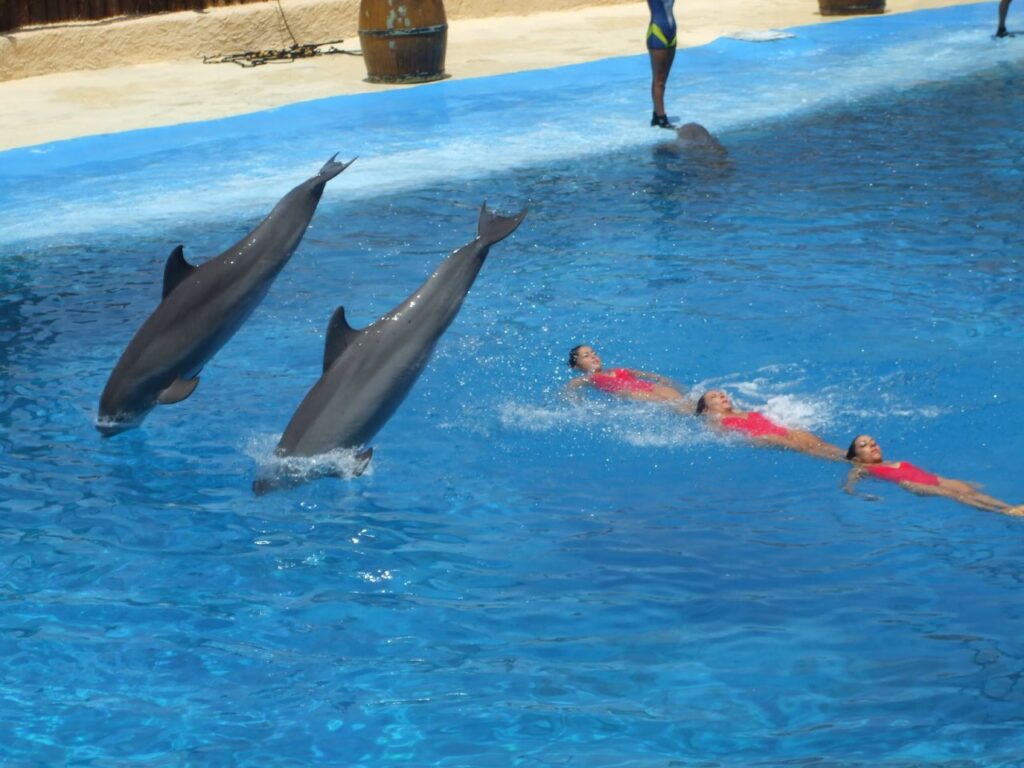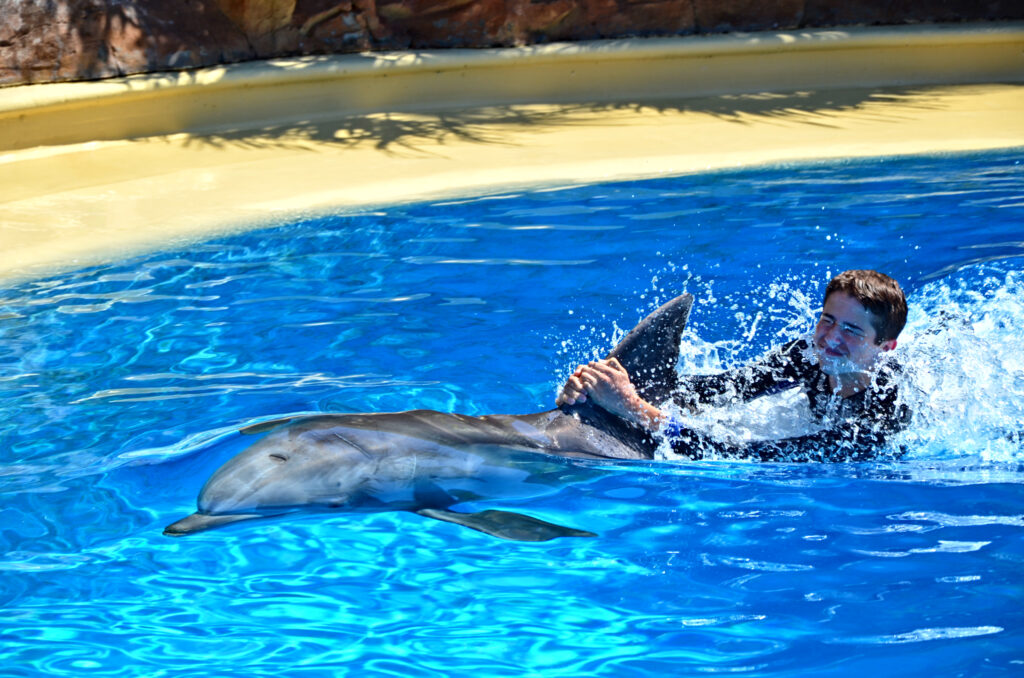Swimming with dolphins is a popular activity that offers a chance to interact with these intelligent and fascinating creatures. However, it raises ethical questions and concerns about the welfare of the animals involved. This article discusses the key ethical considerations and best practices to ensure that swimming with dolphins is both safe and respectful.
The Ethics of Swimming with Dolphins
1. Impact on Wild Dolphins
Swimming with dolphins in their natural habitat can disrupt their daily behaviors. Dolphins rely on specific patterns for hunting, resting, and socializing. When humans approach, it can cause stress, interfere with these routines or even lead to injuries.
2. Captive Dolphins and Welfare Concerns
Many dolphin-swimming programs involve captive dolphins. These animals are often taken from the wild or bred in facilities, living in conditions vastly different from their natural environment. Small tanks and constant human interaction can negatively affect their physical and mental health. Dolphins in captivity have shorter lifespans compared to those in the wild.
3. Feeding and Conditioning
Feeding wild dolphins to attract them for swim tours creates dependency on human-provided food. This alters their natural behaviors and may put them at risk of harm when they approach other vessels expecting food.

Best Practices for Ethical Dolphin Encounters
To ensure ethical and safe experiences for both humans and dolphins, consider the following best practices:
1. Observe from a Distance
Respect dolphins by keeping a safe distance. Most experts recommend maintaining at least 50 meters (164 feet) from wild dolphins. Use binoculars or cameras with zoom lenses for a closer view without causing disturbance.
2. Choose Responsible Tour Operators
Select operators that prioritize dolphin welfare. Look for certifications such as Dolphin SMART, which ensures sustainable practices like minimizing human interaction and avoiding feeding wild dolphins.
3. Follow Local Guidelines
In some regions, laws prohibit swimming with wild dolphins or require permits to interact with them. Adhering to these regulations helps protect both dolphins and their habitats.
4. Avoid Captive Dolphin Programs
Avoid programs that use dolphins in captivity. Instead, support conservation-focused tours that emphasize education and observation of wild dolphins in their natural environment.
5. Limit Group Sizes
Smaller groups reduce the likelihood of overwhelming dolphins. Ethical tour operators often limit the number of participants in each encounter.
Why Ethical Considerations Matter
Ethical dolphin encounters are crucial for protecting these animals and their ecosystems. Here are some reasons why responsible practices are important:
- Preventing Stress: Dolphins experience stress when pursued or crowded by humans. Chronic stress can affect their health and reproduction.
- Protecting Natural Behaviors: Wild dolphins play an essential role in marine ecosystems. Disrupting their natural behaviors can have cascading effects on their environment.
- Promoting Conservation: Ethical tourism raises awareness about the threats dolphins face, such as bycatch, pollution, and habitat destruction.
Educational Benefits of Responsible Dolphin Encounters
Ethical dolphin interactions can foster a deeper appreciation for marine life. Programs that focus on observation and education inspire participants to support conservation efforts. By learning about dolphins’ intelligence, social behaviors, and ecological roles, people are more likely to advocate for their protection.
Alternatives to Swimming with Dolphins
If you want to experience dolphins without causing harm, consider these alternatives:
- Dolphin Watching: Boat tours that observe dolphins from a safe distance offer a low-impact way to appreciate these animals.
- Virtual Experiences: Virtual reality or documentaries about dolphins provide insight into their lives without any disturbance to their habitats.
- Volunteer Opportunities: Support dolphin conservation projects that involve research, education, and habitat protection.
Conclusion
Swimming with dolphins can be a memorable experience, but it must be approached with care and respect. Ethical considerations, such as avoiding captive programs and minimizing human interference, are essential to protecting dolphins and their ecosystems. By following best practices, we can ensure that future generations continue to enjoy these incredible marine mammals in a way that respects their welfare and natural habitats.


